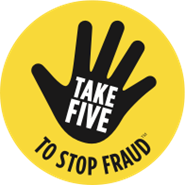
Romance Scams
How to protect yourself from scammers using a fake online identity on sites like dating or social media platforms looking to take advantage of your trust or compassion.

What is romance fraud?
Once they've gained your trust, they start inventing reasons for needing money. These can be anything from an emergency situation, funds for travel to come and see you, asking you to take out a loan for them in your name, and many more. There will often be a promise of paying you back.
How to spot romance fraud
- Someone declaring strong feelings for you after a few conversations.
- They suggest moving to a more private channel. If you’re worried, stay on the app.
- They ask for money, needing it for emergencies or to visit you.
- If their stories aren’t consistent with their profile.
- They claim their camera isn’t working or come up with reasons not to speak or video call.
- They ask you to take out a loan in your name. This means you're liable for the repayments.
- They ask you to lie to your bank. This is a scam and it is illegal.
How to stay safe from romance fraud
- Never send money to anyone you haven’t met, or have only met a handful of times.
- Talk to friends or family about people you match with online.
- Stop and think and ask yourself, is this person legit? Could it be a fake image? Can you find the image elsewhere? You can perform a reverse image search online to find out if a picture has been taken from somewhere or someone else.
- If you think you might have been targeted in a romance scam, it’s ok to reach out to someone. You’re not alone. Often victims can feel embarrassed or ashamed about romance fraud but it’s so important that you tell you bank if you’ve lost money this way. They are there to help.
- Look out for friends or family who become secretive about their online relationships or get defensive when you ask why they haven’t met in person. They could be becoming a victim of romance fraud.
Examples of Romance fraud
Urgent operation
Emma* signed up to an online dating website where she met an aid worker on duty in Iraq called ‘John’. Soon after befriending Emma, John told her that he’d lost his wife and brother to cancer, a story which was very similar to her own. They spoke nearly every day and planned to meet in the UK.
One day Emma received an email from John telling her that he’d been involved in an accident and that he needed an urgent operation. It was life or death. He told her he didn’t have the money to pay and asked if she could send him £5,000. Emma agreed and sent the money through a bank transfer.
Soon after Emma had transferred the money, John told her he needed more to cover hospital bills and convinced Emma to send a further £5,000, assuring her that he’d pay her back when he arrived in the UK.
John never contacted her again. His profile disappeared and he stopped replying to any of Emma’s messages or phone calls.
*Case studies are based on insights from partners
Other types of common scams
Fraud and Security
Investment scams
Staying safe from fraudsters impersonating people or organisations you trust
Fraud and Security
Impersonation scam
How to spot when scammers are promoting goods or services that don’t exist.
Useful Resources

Action Fraud
Action Fraud is the UK's national reporting centre for fraud and cybercrime. This is where you should report fraud.

Get Safe Online
Get Safe Online is the UK's leading awareness resource, and offers free online security advice to help protect people and businesses from fraud and other issues.

Take Five
Take Five offer impartial advice to help prevent email, phone and online fraud. The national campaign focuses on criminals who impersonate trusted organisations and gives you tools to help fight fraud.